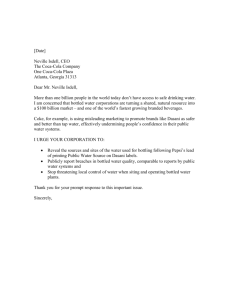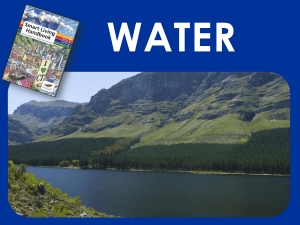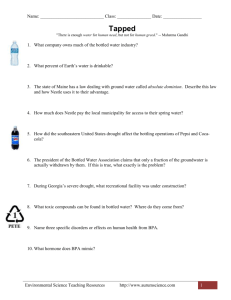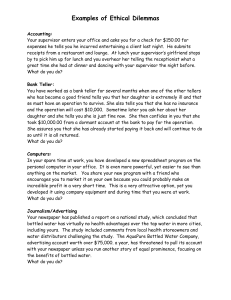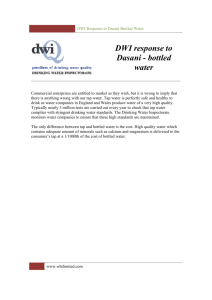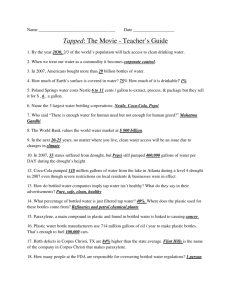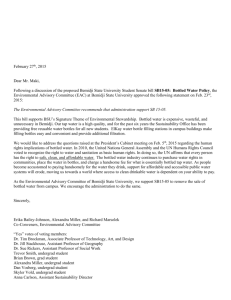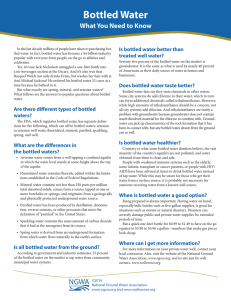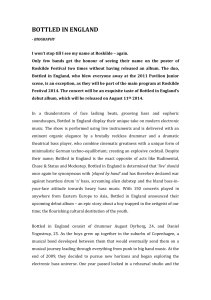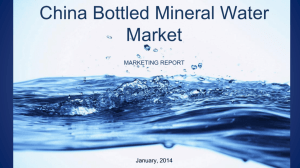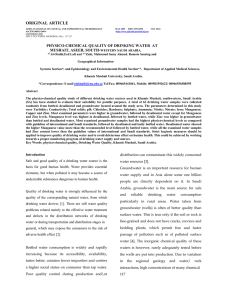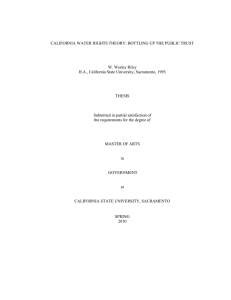Failing to price water economically is bad for the environment
advertisement
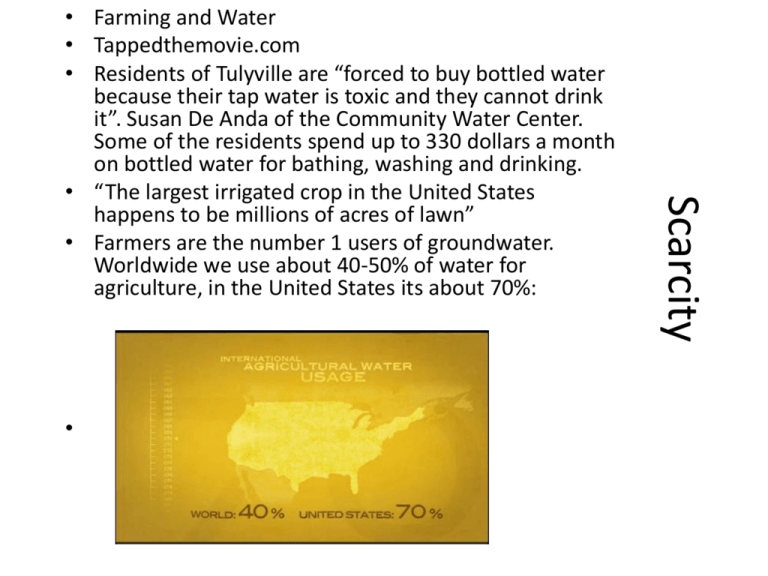
• Scarcity • Farming and Water • Tappedthemovie.com • Residents of Tulyville are “forced to buy bottled water because their tap water is toxic and they cannot drink it”. Susan De Anda of the Community Water Center. Some of the residents spend up to 330 dollars a month on bottled water for bathing, washing and drinking. • “The largest irrigated crop in the United States happens to be millions of acres of lawn” • Farmers are the number 1 users of groundwater. Worldwide we use about 40-50% of water for agriculture, in the United States its about 70%: • http://debatepedia.idebate.org/en/index. php/Argument:_Water_is_not_a_public_r ight Water Scarcity Counterargument • “It is not really possible for governments to distinguish accurately between essential and non-essential uses unless they put monitors of some kind on devices in homes, obviously highly invasive and infeasible. This makes it difficult to call water a "right" in any circumstance. At a minimum, water should not always be considered a right, making it possible to conclude that there is certainly some room for private companies to have an appropriate role in the supply of water.” Water Pollution • There is very little regulation of the pesticides being used in corporate farming. “As a result, communities like Tuliville end up with polluted and undrinkable groundwater.” The nitrates from these pesticides can cause blue baby syndrome, “if a baby under six months of age [ingests] this type of water, the body or the bloodstream is unable to absorb the oxygen, so the baby can literally die… the reality is, you don’t want to drink this water, its scary.” There is clean water in Tulyville that is only allowed to be used for the industrial farming and irrigation. • Farmers are the number one users and polluters of groundwater. • Nitrogen and phosphorus from industrial farming cause dead zones like the dead zone in the Gulf of Mexico, where fish cannot get oxygen from the water. This causes a huge drain on the economy because fisheries can no longer operate in that area. • “The law doesn’t require controls on farmers, so it’s a voluntary program in the United States to control farm run off.” Water Pollution • “Oil and Water” from tappedthemovie.com • “We use 18 million barrels of oil to transport water and its growing every year.” • “It takes 17 million barrels of oil to produce the bottles we make just in the United States, each year.” • “The total amount of energy required for every bottle of water is equivalent on average to filling a plastic bottle a quarter of the way full of oil.” Water Pollution Counterargument • “[A study funded by Nestlé Waters] found that bottled water has the lightest environmental footprint of all packaged beverages. This means that every time people choose bottled water instead of a packaged beverage such as soda or a sports drink, they are choosing a beverage that uses less water and energy. So banning bottled water is not only the wrong move for our health, but also the wrong move for the environment.” • http://www.thecrimson.com/article/2 010/10/21/water-bottled-beveragepeople/ “Water: to privatize or not to privatize". The South Asian. February 27, 2004 Water Privatization “Cochabamba: In 2000, after seven days of civil disobedience and angry protest in the streets, the president of Bolivia was forced to terminate the 40-year water privatization contract granted to Aguas del Tunari, subsidiary of Bechtel Corp. Water rates increased immediately after the contract signing - by 100 to 200 percent in some cases. In a country where the minimum wage is less than $100 per month, many families were paying water bills of $20 or higher. Bechtel and the British-led consortium of investors invested less than $20,000 of up-front capital for a water system worth millions.” Water Privatization • Residents of Tulyville are “forced to buy bottled water because their tap water is toxic and they cannot drink it”. Susan De Anda of the Community Water Center. Some of the residents spend up to 330 dollars a month on bottled water for bathing, washing and drinking. • “Drinking water will become similar to health care in this country” Robert Bullard Environment Justice Resource Center, “because if you have resources, if you are affluent, then you can afford not to use the tap water system, but everybody can’t afford to buy bottled water, and so if we don’t invest in our infrastructure, we will have what’s equivalent to water apartheid.” • Tappedthemovie.com Water Privatization Counterargument • “Failing to price water economically is bad for the environment: Proper pricing of water would reflect all the costs of providing it, including the environmental ones. Water exchanges (such as Australia's one for the Murray-Darling basin) can start by taking account of the needs of the environment and then trading the remaining water efficiently through the actions of the market. Pricing water according to consumption, e.g. through domestic metering, also discourages wasteful use and so reduces the demands on natural water systems such as rivers and underground aquifers.” • http://www.idebate.org/debatabase/topi c_details.php?topicID=294
